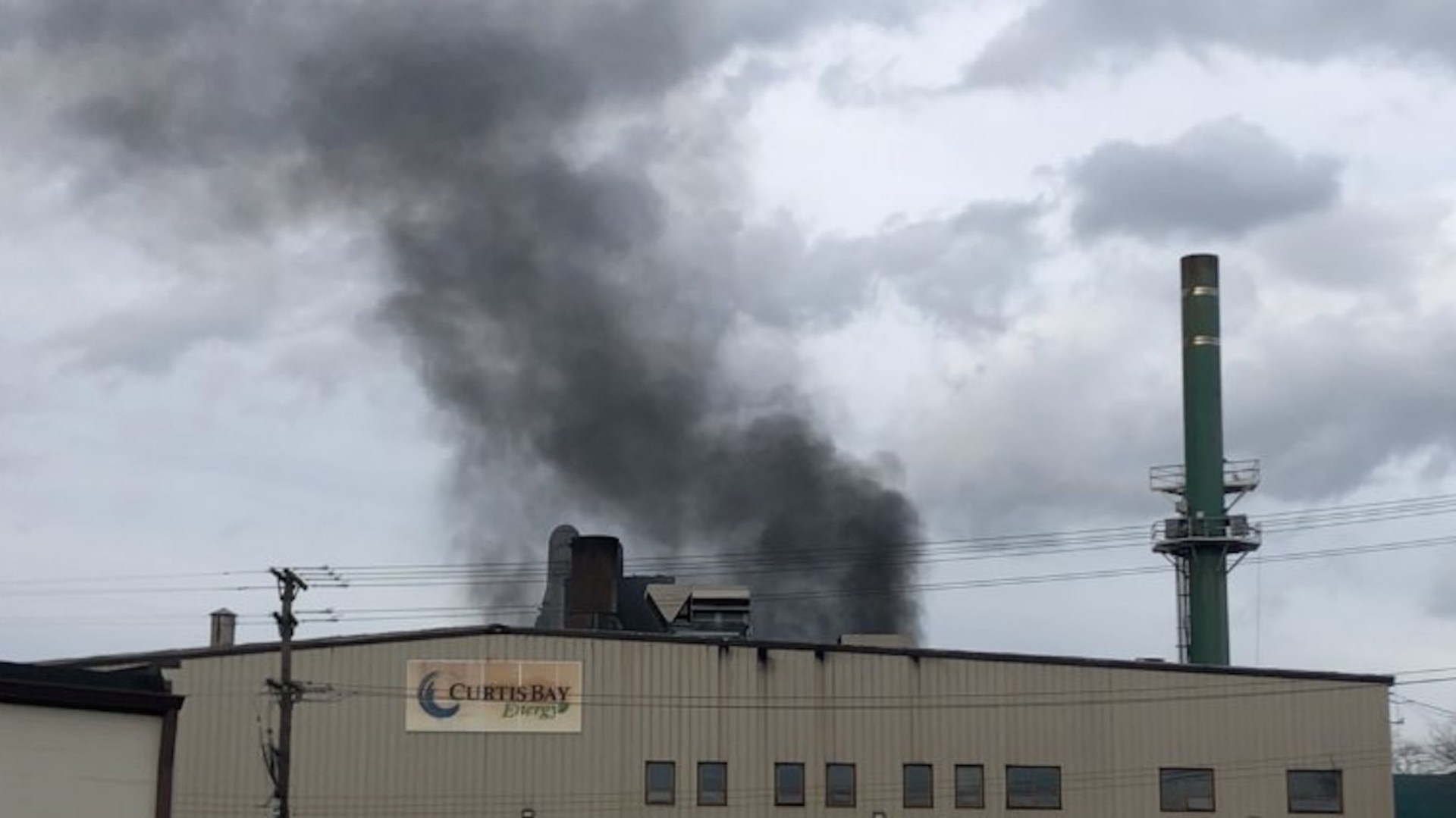A medical waste incinerator in South Baltimore continues emitting thick black smoke, despite being slapped with a historic $1.75 million fine last year for committing serious environmental violations, according to the Baltimore Sun.
What's happening?
In January and February alone, state officials documented seven instances of the Curtis Bay Energy facility belching out untreated emissions through its roof vents rather than its smokestack. The plant also had a fire in late January that prevented proper waste processing.
Tests show the incinerator exceeds legal limits for carbon monoxide, hydrogen chloride, and particulate matter pollution.
"We will not tolerate unlawful practices that threaten the health and well-being of Maryland residents, especially those who are already overburdened," said Maryland's environment secretary, Serena McIlwain.
Why is this air pollution concerning?
Improperly burning medical waste releases toxic chemicals and heavy metals into the air.
This pollution can cause or exacerbate respiratory illnesses like asthma, increase the risk of heart attacks and strokes, and may be linked to certain cancers. Children and the elderly are especially vulnerable.
The incinerator sits in a heavily industrialized area that is already polluted by other chemical plants, coal terminals, and more, compounding health risks for the predominantly lower-income communities in South Baltimore and Northern Anne Arundel County.
What's being done about air pollution?
After documenting the latest violations, the Maryland Department of the Environment says it's quickly pursuing another enforcement action to hold the incinerator accountable and protect public health.
However, local advocates question if this is enough.
"What will it take to actually just not do the bare minimum, but to actually say enough is enough?" said Greg Sawtell of the South Baltimore Community Land Trust, which is engaging the medical institutions that supply the facility with waste.
A Baltimore City Council hearing next month will explore ways local hospitals can reduce pollution from medical waste burning.
What can you do to stop air pollution?
You can get involved by contacting your local representatives to voice your concerns about this environmental injustice and support stronger emissions controls on polluting facilities.
If you're a Baltimore resident, consider submitting written or oral testimony for the upcoming City Council hearing on medical waste incineration. Follow local advocacy groups leading the fight for cleaner air and support their efforts however you can.
Together, we can stand up for everyone's right to breathe healthy air and live in a safe environment, regardless of zip code. Our communities are depending on us.
Join our free newsletter for cool news and actionable info that makes it easy to help yourself while helping the planet.









